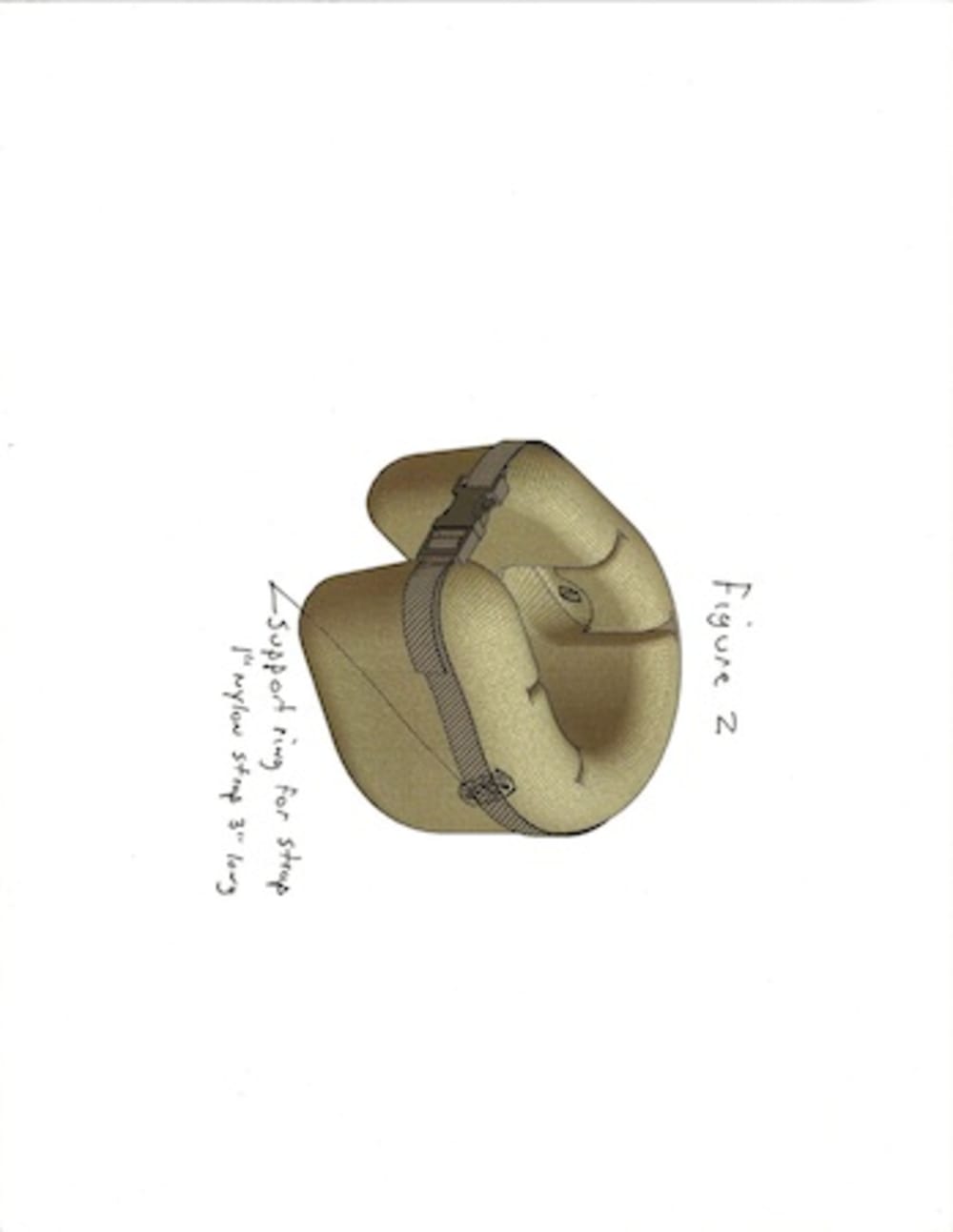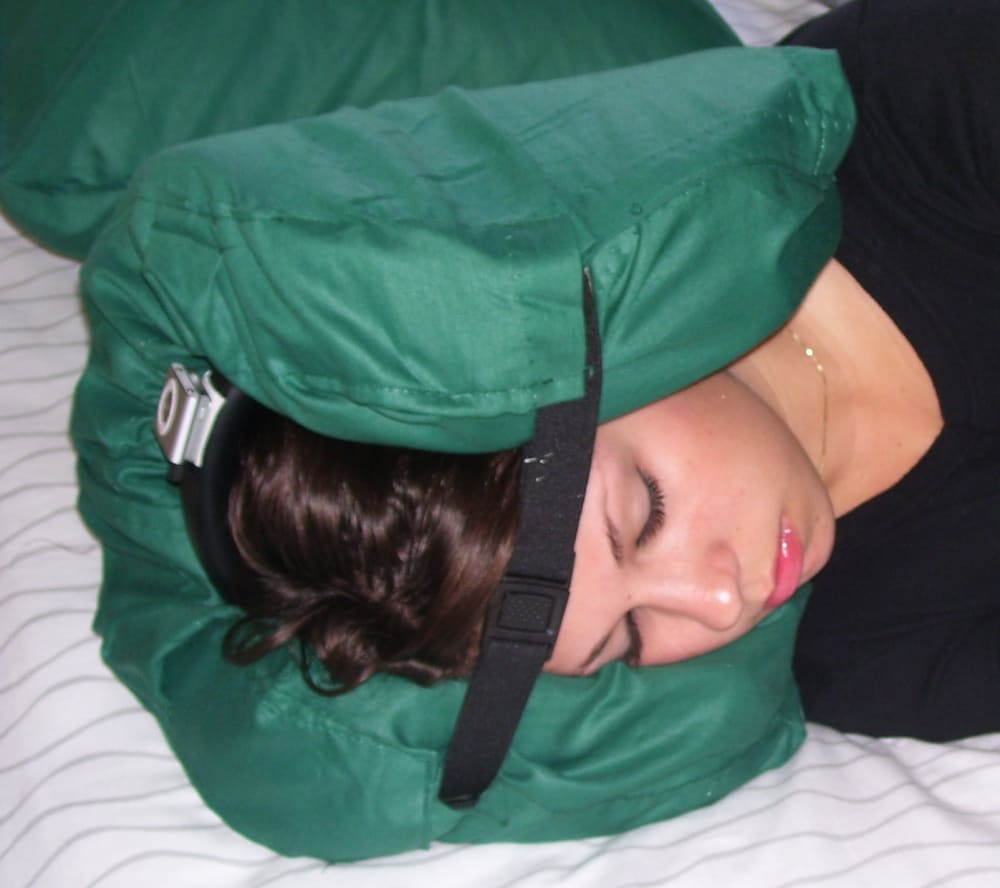Seventy-four million Americans snore every night and 28 million Americans are disturbed by snorers and suffer daytime fatigue. Sixty to seventy percent of shift workers have difficulty sleeping during the day and are often interrupted by noise, light, telephones, family members and other distractions. Twenty five percent of Americans take some type of medication every year to help them sleep. Drowsy driving causes more than 100,000 crashes a year. A market of 28 million people exists for a product that can alleviate these disturbances.
The Quiet Mask is an engineered pillow composed of memory foam that fits around three sides of your head. It houses two earmuffs that fit into the pillow to cover your ears. The mask is designed to wear while sleeping to cancel out or reduce snoring and other noises. The mask cancels out or reduces noises by three methods, the plastic noise reduction ear muff, a noise cancellation mechanism, and a noise masking device that plays music or makes nature sounds such as rain, waterfalls, beach sounds, etc. Since snoring noise is not constant, noise cancellation does not do an adequate job of canceling out snoring noise. You need to mask out noise with pleasant sounds such as music or nature sounds and complement noise cancellation to divert your attention away from snoring noises so you can focus on the music or nature sounds, and relax enough to fall asleep.
The closest competitors for snoring noise reduction are: ear plugs, Snore Master Pro™, sleeping pills and sleep phones. There are problems with each of these. Ear plugs fall out, are difficult to sleep in, and reduce noise by 70-80%. The Snore Master Pro™ is a $600 ear piece that produces white noise and reduces noise by 75%. Sleeping pills build tolerance, risk addiction and are of limited time use. Sleep phones with built in ear buds $39, do play music or nature sounds, but have no noise cancellation device or pillow. For comparison, The Quiet Pillow cancels out 93.7% of noise, which is far more noise than its competitors because noise scales are logarithmic.
Wholesale production costs for a low end unit are $36.55, high end is $82.50. Retail costs would be $146 and $330 respectively. Manufacturing for the electronic noise canceler/masker can be farmed to overseas firms to take advantage of the quality and lower costs. The memory foam pillow can be competitively manufactured in the USA. A fulfillment firm can combine the pieces and distribute the product.
The Quiet Pillow can be marketed to the US Military because many military facilities are noisy and busy around the clock. Additional marketing includes, catalog sales, TV infomercials, the internet, and retail stores. Electronic stores such as, Best Buy, Radio Shack, and Brookstone can be targeted, but a second line such as the kitchen and bath stores, (Bed Bath & Beyond, Williams-Sonoma, etc) may be the best approach.
Intellectual property protection is being pursued.
Like this entry?
-
About the Entrant
- Name:Michael Kirby
- Type of entry:individual
- Software used for this entry:3-D Graphics Program with file extension .ipt
- Patent status:none








